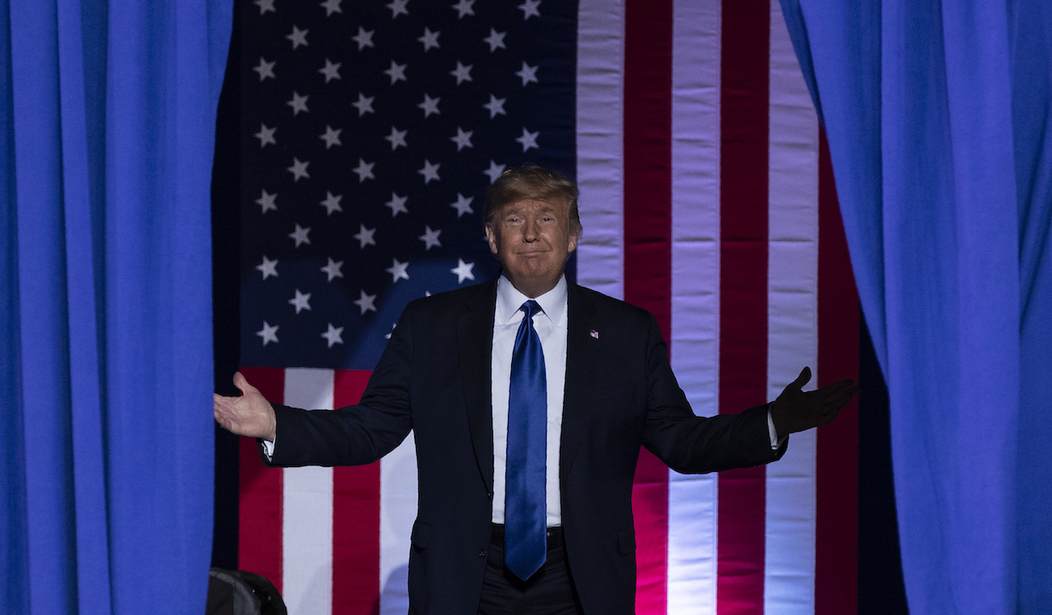This week, the juxtaposition between the Senate impeachment trial against President Donald Trump and his address to the World Economic Forum in Davos, Switzerland, is surreal. The first is an attempt to remove Trump from the presidency; the second was an incredibly powerful speech that focused on the success of our nation and his presidency. It might lead one to ask, "How could both be true?" Yet here we are.
The impeachment proceedings get almost nonstop coverage, so let's focus on the other, more worldly, more positive, less covered event. According to the WEF website, the organization "engages the foremost political, business, cultural and other leaders of society to shape global, regional and industry agendas." The WEF "strives in all its efforts to demonstrate entrepreneurship in the global public interest while upholding the highest standards of governance."
Entrepreneurship is the creative human engine that fuels economic, personal and societal growth; governance is the rules, process and practice that affect how organizations (corporations, nonprofits or countries) are governed. Let's start with entrepreneurship.
President Trump's speech was both optimistic and forward-looking. He declared: "We've regained our stride. We discovered our spirit and reawakened the powerful machinery of American enterprise. America is thriving. America is flourishing. And, yes, America is winning again like never before."
Giving examples of those wins, Trump cited the trade deal with China and the United States-Mexico-Canada agreement, an increase in manufacturing jobs, the low unemployment rate, wage increases for workers, the rising stock market and the fact that "paychecks for high school graduates are rising faster than for college graduates."
Recommended
These achievements were driven, according to Trump, by all decisions being "focused on improving the lives of everyday Americans." These decisions included tax cuts, child care credits, the paternal leave tax credit, a reduction in federal regulations and a focus on energy independence.
Decisions affecting the American worker are guided by a belief "that a growing and vibrant market economy focused on the future lifts the human spirit and excites creativity strong enough to overcome any challenge -- any challenge by far," he said.
This belief reflects back to the speech Trump delivered the day after his election, when he articulated, "I've gotten to know our country so well -- tremendous potential," and said he wishes that "every single American will have the opportunity to realize his or her fullest potential."
It is through entrepreneurship that this potential is being unleashed. Governance is focused on execution and oversight. While much attention has been paid during the past few years to the importance of corporate governance, not enough attention has been given to government governance.
This is evident in the ongoing criminal investigation by John Durham, the U.S. attorney for the District of Connecticut, into the origins of the Russian probe into Trump's presidential campaign; the ongoing Department of Justice investigation into government corruption in the city of Atlanta; and into the pledge by Ukrainian President Volodymyr Zelensky to root out corruption in his country.
Because corruption is often hard to see and slow to uncover, we all too often fail to focus on the importance of government governance.
In a country where we believe in a government of the people by the people and for the people, if government governance is not strong, then the political intent means nothing.
Just this week, NPR posted an article by reporters Vanessa Romo and Adrian Florido titled "Political Unrest in Puerto Rico After Discovery of Unused Hurricane Aid." They wrote: "A local blogger named Lorenzo Delgado had been tipped off about a government-run warehouse in the southern city of Ponce ... The warehouse, it turned out, was filled with supplies; pallets of expired baby food, expired water, blue tarps, gas stoves, diapers, cots, air mattresses and sheets sat untouched, even as thousands continue to sleep outside in decimated communities."
One of the dates stamped on the bottles of water in the warehouse was Oct. 14, 2017. Clearly, the supplies should have been handed out to needy people years ago. In response, Wanda Vazquez, the governor of Puerto Rico, (who has been in office for only a few months), fired Carlos Acevedo, the head of Puerto Rico's Office of Emergency Management; Fernando Gil, the secretary of housing; and Glorimar Anduja, the secretary of family affairs, for their alleged mismanagement of the supplies.
My point is that while the intent might be good (in this case, the funding of aid from the federal government years ago), if the execution does not work, then the citizens bear the burden. We must keep our focus both optimistic and forward-looking while strengthening government governance.

























Join the conversation as a VIP Member